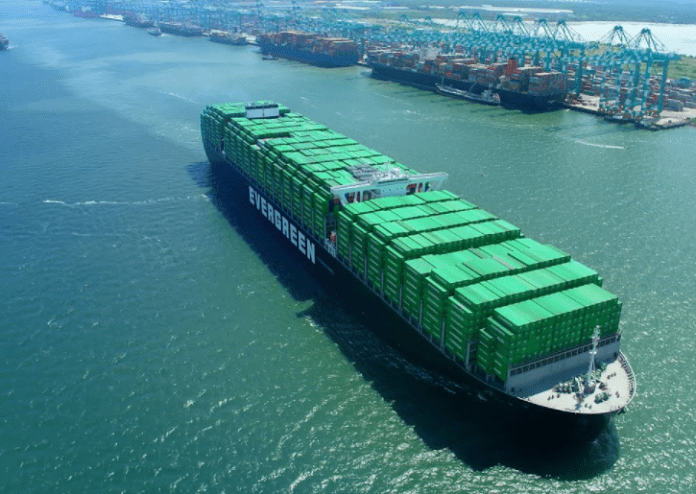Evergreen Marine Corporation chairman Chang Yen-i says phasing out of older vessels will assuage concerns of heavy orderbook.
Taiwan’s largest liner operator and the world’s sixth-largest has 56 ships totalling 541,816 TEU, amounting to 34% of its existing fleet of 1.58 million TEU.
Chang said in a media briefing that Evergreen, like all companies, has a timeframe for disposing of older vessels that are less environment-friendly. He added that while tonnage providers have also ordered a good number of vessels, they will also have to remove older ships from the market.
The International Maritime Organization’s regulations require ship owners and operators to reduce carbon emissions by at least 2% annually, beginning in 2024, to remain in compliance.
Alluding to this, Chang said, “Older ships that don’t meet the requirements will have to exit the market.”
Liner operators which have larger orderbook-to-fleet ratios than Evergreen include Sinokor Merchant Marine, whose orderbook of 93,391 TEU is 111% of its existing fleet and Wan Hai Lines, which has 72,356 TEU, amounting to 72% of its in-service ships.
MSC, now the world’s largest liner operator, also has the largest orderbook in terms of absolute numbers, with 114 ships of 1.53 million TEU on order.
Liner operators are expected to continue reaping profits this year, after a windfall in the last two years, and many of them are actively expanding their fleets.
The current orderbook is nearly 30% of the existing fleet, causing observers to wonder if there will be an oversupply when these vessels are delivered in the next three years.
Another concern is that charter rates might be depressed if excess tonnage has to be fixed out.
However, Chang said, “The number of container ships that are more than 21 years old stands at around 2.27 million TEU and this is around 10% of the existing fleet. When the IMO’s carbon emission reduction regulations take effect, half of the world’s fleet will need to upgrade their equipment or slash carbon emissions. The European Union will also start levying carbon taxes next year, and this will accelerate the removal of older ships.”
Martina Li
Asia Correspondent







